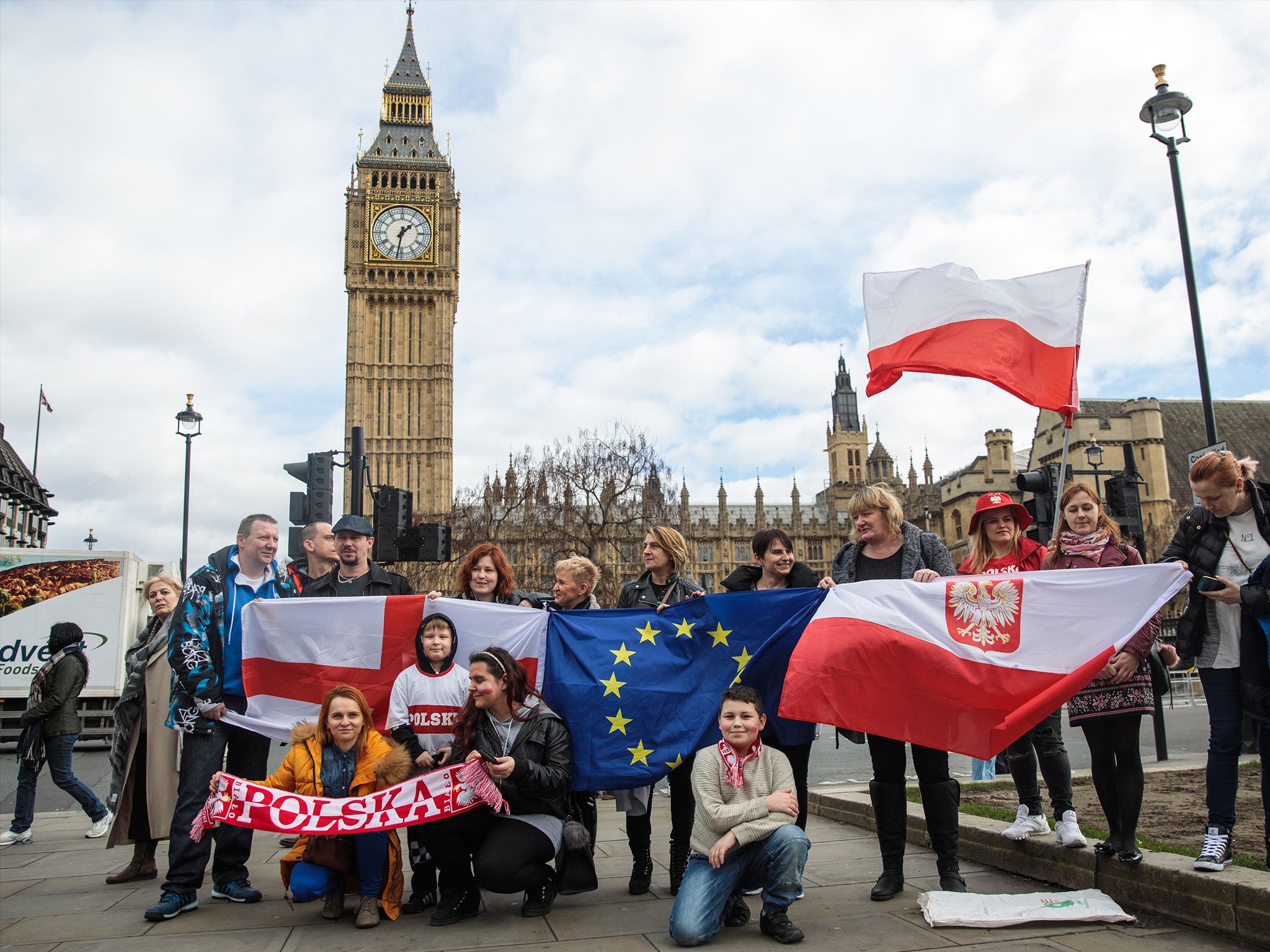More than 135,000 EU nationals have applied to live in Britain permanently in just six months, ministers reveal
It is a 'nightmare' bureaucratic process which involves filling in a 85-page form - but the Home Office is being inundated with applications for residency

Your support helps us to tell the story
From reproductive rights to climate change to Big Tech, The Independent is on the ground when the story is developing. Whether it's investigating the financials of Elon Musk's pro-Trump PAC or producing our latest documentary, 'The A Word', which shines a light on the American women fighting for reproductive rights, we know how important it is to parse out the facts from the messaging.
At such a critical moment in US history, we need reporters on the ground. Your donation allows us to keep sending journalists to speak to both sides of the story.
The Independent is trusted by Americans across the entire political spectrum. And unlike many other quality news outlets, we choose not to lock Americans out of our reporting and analysis with paywalls. We believe quality journalism should be available to everyone, paid for by those who can afford it.
Your support makes all the difference.More than 135,000 EU nationals have applied to live in Britain permanently in just six months, it has been revealed – ahead of a Commons showdown next week.
The Home Office is being inundated with bids for residency, as Theresa May continues to fight pressure to guarantee EU citizens can remain in the country after Brexit.
Applicants are plunged into what has been called a “nightmare” bureaucratic process of filling in a 85-page form at a cost of £65. The guidance notes alone run to 18 pages.
They must prove they have been living and working in the UK for the past five years, providing documents for every occasion they have left the UK in that period.
Such information is no longer included in many passports because of the EU’s free movement of people, critics have pointed out.
And EU nationals who have not been working must show they took out comprehensive health insurance - a requirement that was little known until recently.
Next week, the Prime Minister is expected to urge the Commons to overturn last week’s humiliating defeat in the Lords, which voted overwhelmingly to give all 3m EU nationals the right to stay in Britain.
Peers warned of the “devastating consequences” facing public services and the economy without EU workers – as well as the fear many feel about their future.
In the Commons, Home Office minister Robert Goodwill gave no indication of a U-turn that would see the Government offer a unilateral guarantee.
But he said: “The latest data show that in the two quarters following the referendum there were 136,479 applications received for residence documentation from EU nationals and their family members.”
Chi Onwurah, a Labour MP, said EU nationals are an integral part of the British community, working in hospitals, universities and at top-flight football clubs.
She added: “Do you realise how insecure they feel as bargaining chips? And how do you justify charging them for the privilege?”
In reply, the minister said: “Whilst they are here and we are members of the European Union, they can exercise their treaty rights and, as the Home Secretary has already said, we wish to sort this situation out as soon as possible.
“And, of course, we also need to recognise the status of the UK nationals elsewhere in the European Union, who deserve and want the same protections.”
Figures released last month suggested a quarter of EU citizens applying for residency are having their applications thrown out, often on technicalities.
The Home Office has been accused of becoming far more rigid in the way it assesses bids, as a huge backlog to grab the legal lifeline builds up.
Just three Tory MPs broke ranks when, last month, the Government blocked a bid to unilaterally protect EU nationals’ rights with a comfortable majority of 42
That suggests around 25 rebels will be needed when the Commons votes again next Tuesday.
Most Conservative MPs trust the Prime Minister after she vowed to ensure the issue is top of her wish-list when the two-year Brexit negotiations get underway, after Article 50 is triggered.
Ms May will not act until she receives “the same reassurance for UK citizens living in the EU” – with German Chancellor Angela Merkel blamed for refusing to start early talks.
Join our commenting forum
Join thought-provoking conversations, follow other Independent readers and see their replies
Comments